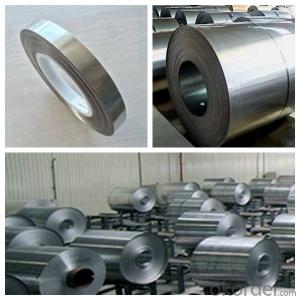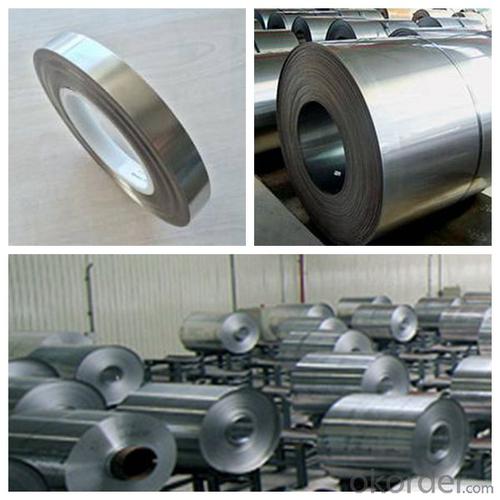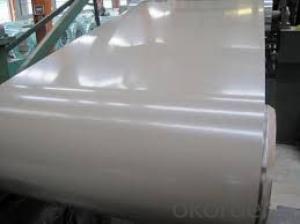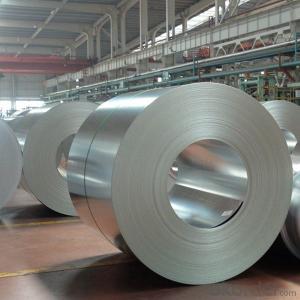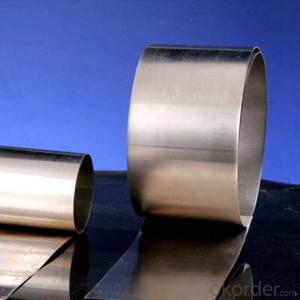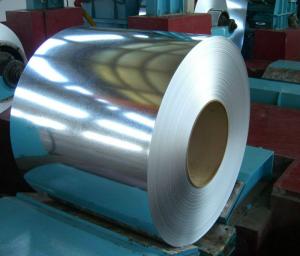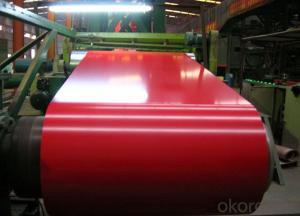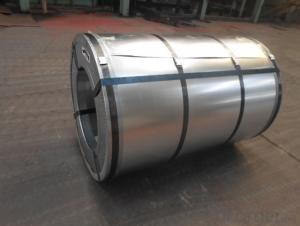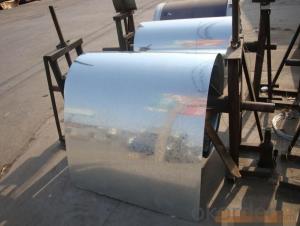Stainless Steel Made In China Good Quality 304 Stainless Steel
- Loading Port:
- Tianjin
- Payment Terms:
- TT OR LC
- Min Order Qty:
- 25 m.t.
- Supply Capability:
- 10000 m.t./month
OKorder Service Pledge
OKorder Financial Service
You Might Also Like
Specification
Description for Stainless Steel Coils/Sheets:
Prodcut:Stainless Steel Coil
Thinckness: 0.20mm-8.0mm
Width:1000mm, 1219mm(4 feet), 1250mm, 1500mm, 1524mm(5 feet),
1800mm, 2000mm, 2200mm, 2500mm,and customizable
Ni:0.8~1.2% Cu:1.4~1.5% Cr:14
Standard: ASTM, JIS, GB, BS, DIN etc
Grade: 200series&300series&400series
Surface finish: 2B, BA, 8K, 6K, Mirror Finished, No1, No2, No4, Hair Line with PVC
Manufacture technology: cold rolled/hot rolled
Thickness Tolerance: +/-0.1mm
Width Tolerance: +/-10mm
200 Seriers: 201,202
300 Seriers: 301, 304, 304L, 316L, 309, 310S,321
400 Seriers: 410, 410S, 409L,430
Specifications for Stainless Steel Coils/Sheets:
ITEM | DESCRIPTION |
Commodity | Stainless Steel Coil |
Material | 201, 202, 301, 321, 304, 304L, 316, 316L, 309S, 310S, 410, 430, etc. |
Surface | 2B, BA, 8K, No. 4 No.1 |
Standard | AISI, ASTM, DIN, EN, GB, JIS, etc. |
Specification | 1. Thickness : 0.3mm -120mm |
Application | 1. Automotive: Automotive trim and molding/Difficult-to-form exhaust-system |
Process | Hot rolled / cold rolled |
Payment | L/C,T/T |
MOQ | 20 Ton |
Productivity | 700 tons per month. |
Package | Standard seaworthy export packing or according to the customers' request. |
Delivery Time | It is based on the order, normally within 30 days after receiving your advance payment. |
Note | We can produce other standard as the customers' requirement. |
Detail picture for Stainless Steel Coils/Sheets
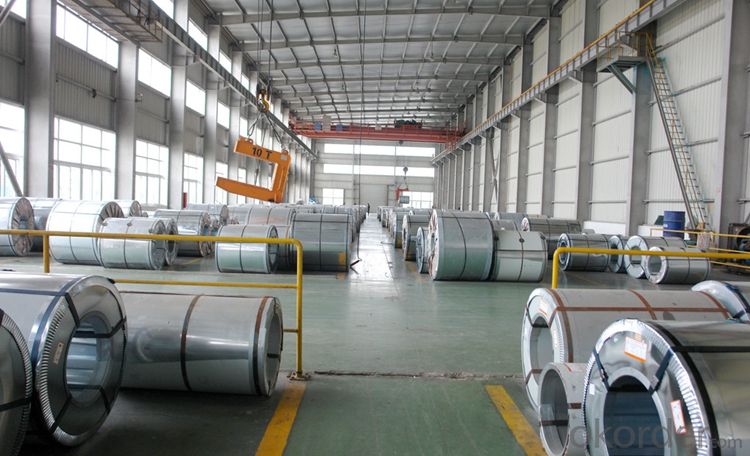
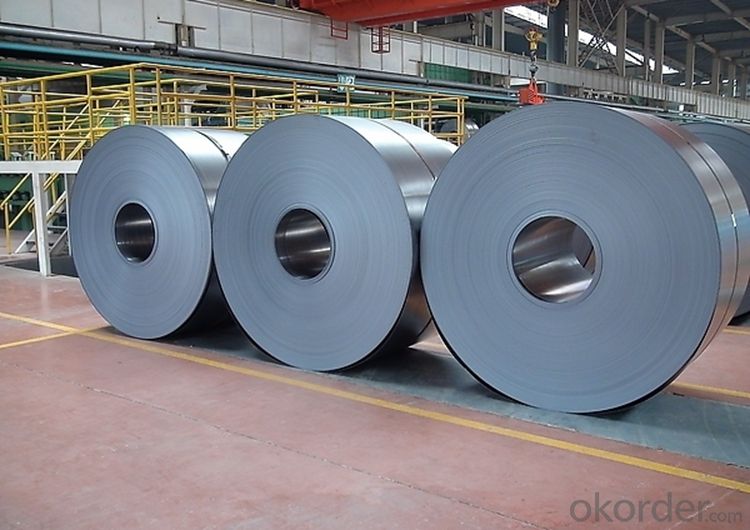
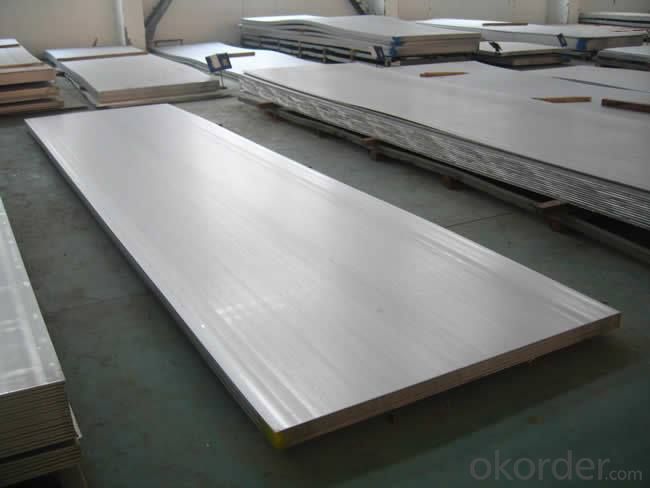
Application of Stainless Steel Coils
(1)Boiler heat exchanger,
(2)Chemical industries,
(3)Hardware fields,
(4)Construction material,
(5)Kitchen utensils,
(6)Building construction,
(7)Medical equipment,
(8)Chemical tank,
(9)Pipe etc
Export Markets for Stainless Steel Coils/Sheets:
Our target market is the international market. Every year we export most of products to countries like India, Pakistan, South Korea, Brazil, Australia, South Africa, Spain, Sri Lanka, Taiwan, Hong Kong, etc.
FAQ for Stainless Steel Coils/Sheets:
Q: How long is the delivery time?
A: Normally 30-40 days, but mostly according to the specific requirements or the quantity
Q: Could you send me sample?
A: We can supply you with the sample for free, but the delivery charges will be covered by customers.
FAQ for Stainless Steel Coils/Sheets:
Q: How can I get the samples?
A: If you need some samples to test ,please pay for the transportation freight of samples and our samples are free for you.
Q: How can I get your price list?
A: Please send us your email or fax and order information – Quantity, Specification (steel type, thickness, width, surface finish), then I can send you the price list.
- Q: What are the different types of coil edge trimming machines?
- In the market, one can find a variety of coil edge trimming machines. These machines are specifically designed for the purpose of trimming the edges of coils or rolls made from different materials like metal, paper, plastic, or fabric. Each machine type possesses unique features and capabilities to cater to specific trimming needs. 1. Manual Edge Trimmers: These machines require manual operation where an operator feeds the coil and trims the edges using a cutting tool or blade. Manual edge trimmers are suitable for trimming applications with low volumes and rely on the skill and precision of the operator. 2. Semi-automatic Edge Trimmers: These machines offer automated feeding mechanisms to assist in the coil feeding process. However, the operator still performs the trimming manually using a cutting tool. The feeding mechanism reduces manual effort and increases productivity. 3. Automatic Edge Trimmers: These fully automated machines require minimal operator intervention. Equipped with advanced sensors and controls, they ensure precise and consistent trimming of coil edges. Automatic edge trimmers can handle high volumes of coils and are often integrated into production lines for continuous trimming operations. 4. Rotary Blade Edge Trimmers: These machines utilize high-speed rotating blades to trim coil edges with precision. Commonly used for plastic or fabric coils, they provide clean and smooth cuts. 5. Guillotine Edge Trimmers: These machines employ a guillotine-like cutting mechanism to trim coil edges. The cutting blade moves vertically, resulting in straight and accurate cuts. Guillotine edge trimmers are suitable for trimming metal or paper coils. 6. Laser Edge Trimmers: These machines adopt laser technology to trim coil edges. The laser beam ensures clean and precise cuts, making them ideal for delicate or high-value materials. The choice of the appropriate coil edge trimming machine depends on the specific requirements of the application. Factors such as material type, coil dimensions, trimming precision, and production volume should be taken into consideration. Each machine type has its own advantages and limitations.
- Q: How are steel coils used in the manufacturing of construction excavators?
- Steel coils are often used in the manufacturing of construction excavators to form the structural components and body parts. These coils are cut, shaped, and welded to create the framework, bucket, and other essential components of the excavator. The high strength and durability of steel make it an ideal material for supporting heavy loads and withstanding the demanding conditions of construction sites.
- Q: How are steel coils used in the production of packaging materials?
- Steel coils are used in the production of packaging materials by being processed into thin sheets or strips that can be shaped and formed into containers, cans, or other packaging components. These steel sheets are often used as a base material for packaging products due to their strength, durability, and ability to protect goods during transportation and storage.
- Q: How does the surface finish of steel coils affect their performance?
- The surface finish of steel coils greatly affects their performance. A smooth and uniform surface finish enhances the coil's corrosion resistance, durability, and ability to resist wear and tear. It also improves the coil's ability to form and join with other materials, making it easier to work with during manufacturing processes. On the other hand, a rough or uneven surface finish can lead to decreased performance, as it can negatively impact the coil's ability to resist corrosion, reduce its overall strength, and potentially cause issues during processing and handling. Therefore, ensuring a proper surface finish is crucial in optimizing the performance and lifespan of steel coils.
- Q: Which type is better and give reasons why... I making a team of either Dark or Steel :D Thankyou
- Steel-type Pokemon are strong against Ice and Rock-type Pokemon, weak against Fire, Fighting, and Ground-type moves, resistant to Dark, Dragon, Ghost, Grass, Ice, Normal, Psychic, Rock, and Steel-type moves, and are immune to Poison-type moves. Notable Steel-type Pokemon include Skarmory, Scizor, and Metagross. Dark-type Pokemon are strong against Ghost and Psychic-type Pokemon, weak against Bug and Fighting-type moves, resistant to Ghost-type moves, and immune to Psychic-type moves. Notable Dark-type Pokemon include Houndoom, Murkrow, and Sneasel. Steel-type Pokemon have more resistances than Dark-types, but more weaknesses as well. In truth, no one type is better than any other, and making a team composed entirely of a single type may make some battles difficult. It's best to keep your options open, and go with a wide variety of types.
- Q: what is the densest type of steel ? what is its density ?what is its tensile strength .
- Technically, any metal that is not pure could be considered a steel alloy with the addition of iron. Density will vary depending on the percentage of each alloying element. In commonly available alloys, those with a high percentage of nickel will be the most dense. Nickel has a high molecular weight and readily alloys with most other metals. This class of materials is stainless steels, heat resistant super alloys such as inconel, hastalloy, etc. Tensile strength is not directly related to nickel content. Elements such as boron, manganese, molybdenum, and chromium have the most effect on tensile strength in steel alloys both as rolled and heat treated. Hope that answers your question.
- Q: I have a set of Stainless steel pots and pans. Everything is sticks to them. What must I do so things don't stick?
- First, they must be absolutely shiny, clean. Use a scouring pad in circular motions to make them as smooth as possible, then use Non-stick spray, but read the label, some oil sprays contain water and they will stick every time. Spray with canola or pour canola in the pan and warm it up before putting in the food. For flavor you can mix the canola with some olive oil or butter, but don't overheat or they will smoke and burn. For frying pancakes or eggs, the best choice is a teflon coated pan, use an oil spray and medium heat only.
- Q: Can steel coils be stamped?
- Yes, steel coils can be stamped. Stamping is a common manufacturing process used to shape and cut steel coils into desired forms and designs.
- Q: What are the common methods of inspecting steel coils for quality control?
- Steel coils are inspected for quality control purposes using various methods. These methods involve visual inspection, dimensional measurement, and non-destructive testing. To inspect steel coils, visual inspection is a commonly used and straightforward method. This entails visually examining the surface of the coils for any visible defects such as scratches, dents, or discoloration. Visual inspection also includes checking the labeling, packaging, and identifying signs of corrosion or damage. Another crucial method to ensure quality is dimensional measurement. This involves measuring different dimensions of the coils, such as thickness, width, and length, to ensure they meet the required specifications. Tools like calipers, micrometers, or laser measurement devices can be utilized for dimensional measurement. Non-destructive testing (NDT) techniques are also widely employed in steel coil inspection. NDT methods enable the detection of internal and surface defects without causing damage to the material. Ultrasonic testing is a common NDT technique used for steel coil inspection. It works by sending high-frequency sound waves through the coil and analyzing the reflected waves to identify any defects. In addition, magnetic particle testing and dye penetrant testing are used to detect surface cracks or defects in the coils. Apart from these methods, other quality control practices may include chemical analysis to ensure the steel's composition meets the required standards, mechanical testing to assess the strength and hardness of the material, and corrosion testing to evaluate the coils' resistance to corrosion. In summary, a combination of visual inspection, dimensional measurement, and non-destructive testing techniques is typically employed to ensure the quality and integrity of steel coils during the quality control process.
- Q: What are the environmental impacts of steel coil production?
- The environmental impacts of steel coil production include emissions of greenhouse gases, such as carbon dioxide, during the process of extracting and processing raw materials like iron ore and coal. Additionally, the production of steel coils requires a significant amount of energy, contributing to the depletion of natural resources and increased carbon emissions. The wastewater generated during steel production can also contain pollutants, which may harm aquatic ecosystems if not properly treated. Furthermore, the disposal of steel coil waste, such as slag and other by-products, can pose challenges in terms of proper handling and potential contamination of soil and water sources. Overall, steel coil production has substantial environmental impacts that demand sustainable practices and mitigation measures.
Send your message to us
Stainless Steel Made In China Good Quality 304 Stainless Steel
- Loading Port:
- Tianjin
- Payment Terms:
- TT OR LC
- Min Order Qty:
- 25 m.t.
- Supply Capability:
- 10000 m.t./month
OKorder Service Pledge
OKorder Financial Service
Similar products
Hot products
Hot Searches
Related keywords
